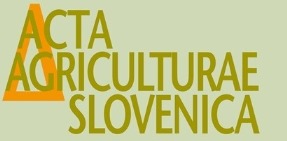Vpliv trajnostnih shem pridelovanja kave na življenski standard kmečkih gospodinjstev v provinci Aceh, Indonezija
Povzetek
Ključne besede
Celotno besedilo:
PDF (English)Literatura
Abdia, Y., Kulasekera, K. B., Datta, S., Boakye, M., & Kong, M. (2017). Propensity scores based methods for estimating average treatment effect and average treatment effect among treated: A comparative study. Biometrical Journal. https://doi.org/10.1002/bimj.201600094
Arifin, B. (2010). Global sustainability regulation and coffee sdupply chains in Lampung province, Indonesia. Asian Journal of Agriculture and Development. https://doi.org/10.37801/ajad2010.7.2.5
Arnould, E. J., Plastina, A., & Ball, D. (2009). Does fair trade deliver on its core value proposition? Effects on income, educational attainment, and health in three countries. Journal of Public Policy & Marketing, 28(2), 186-201. https://doi.org/10.1509/jppm.28.2.186
Austin, P. C. (2011). An introduction to propensity score methods for reducing the effects of confounding in observational studies. Multivariate Behavioral Research. https://doi.org/10.1080/00273171.2011.568786
Azen, R., & Walker, C. M. (2011). Categorical data analysis for the behavioral and social sciences. In Categorical Data Analysis for the Behavioral and Social Sciences. https://doi.org/10.4324/9780203843611
Bacon, C. (2005). Confronting the coffee crisis: can fair trade, organic, and specialty coffees reduce small-scale farmer vulnerability in northern Nicaragua?. World Development, 33(3), 497-511. https://doi.org/10.1016/j.worlddev.2004.10.002
Blackman, A., & Naranjo, M. A. (2012). Does eco-certification have environmental benefits? Organic coffee in Costa Rica. Ecological Economics. https://doi.org/10.1016/j.ecolecon.2012.08.001
Borsellino, V., Schimmenti, E., & El Bilali, H. (2020). Agri-food markets towards sustainable patterns. In Sustainability (Switzerland). https://doi.org/10.3390/su12062193
Caliendo, M., & Kopeinig, S. (2008). Some practical guidance for the implementation of propensity score matching. Journal of Economic Surveys. https://doi.org/10.1111/j.1467-6419.2007.00527.x
Central Bureau of Statistics. (2019). Statistics of Indonesian Coffee 2019. Central Bureau of Statistics, Jakarta.
Chiputwa, B., Spielman, D. J., & Qaim, M. (2015). Food standards, certification, and poverty among coffee farmers in Uganda. World Development, 66, 400–412. https://doi.org/10.1016/j.worlddev.2014.09.006
Directorate General of Plantation (2018). Coffee Production by Province in Indonesia. Retrieved from www.pertanian.go.id
Directorate of Agriculture (2020). Coffee Production by Province in Indonesia. Retrieved from www.pertanian.go.id
Food and Agriculture Organization of the United Nations. (2018). FAOSTAT Database. Rome, Italy: FAO. Retrieved December 20, 2020 from http://faostat3.fao.org/home/E
Heinrich, C., Maffioli, A., & Vázquez, G. (2010). A Primer for Applying Propensity-Score Matching:Impact-Evaluation Guidelines. In Technical Notes, No. IDB-TN-161.
Helmsing, A. H. J. B., & Vellema, S. (2012). Value chains social inclusion and economic development: Contrasting theories and realities. In Value Chains Social Inclusion and Economic Development: Contrasting Theories and Realities. https://doi.org/10.4324/9780203816806
Henson, S., & Reardon, T. (2005). Private agri-food standards: Implications for food policy and the agri-food system. Food Policy. https://doi.org/10.1016/j.foodpol.2005.05.002
Ibanez, M., & Blackman, A. (2016). Is Eco-Certification a Win–Win for Developing Country Agriculture? Organic Coffee Certification in Colombia. World Development. https://doi.org/10.1016/j.worlddev.2016.01.004
Ibnu, M., Glasbergen, P., Offermans, A., & Arifin, B. (2015). Farmer preferences for coffee certification: A conjoint analysis of the Indonesian smallholders. Journal of Agricultural Science. https://doi.org/10.5539/jas.v7n6p20
Ibnu, M., & Marlina, L. (2019). Sustainability standards and certification dan Ppathway Menuju Produksi Kopi Berkelanjutan di Indonesia (in Bahasa). Suluh Pembangunan : Journal of Extension and Development. https://doi.org/10.23960/jsp.vol1.no2.2019.21
International Coffee Organization (2019). Monthly Export Statistics (Members & Non Members. Retrieved from http://www.ico.org/trade_statistics.asp.
Jena, P. R., Chichaibelu, B. B., Stellmacher, T., & Grote, U. (2012). The impact of coffee certification on small-scale producers’ livelihoods: A case study from the Jimma Zone, Ethiopia. Agricultural Economics (United Kingdom). https://doi.org/10.1111/j.1574-0862.2012.00594.x
Kolk, A. (2013). Mainstreaming sustainable coffee. Sustainable Development. https://doi.org/10.1002/sd.507
Loureiro, M. L., & Lotade, J. (2005). Do fairtrade and eco-labels in coffee wake up the consumer conscience? Ecological Economics. https://doi.org/10.1016/j.ecolecon.2004.11.002
Macdonald, K. (2007). Globalising justice within coffee supply chains? Fairtrade, Starbucks and the transformation of supply chain governance. In Third World Quarterly. https://doi.org/10.1080/01436590701336663
Maertens, M., & Swinnen, J. F. M. (2009). Trade, Standards, and Poverty: Evidence from Senegal. World Development. https://doi.org/10.1016/j.worlddev.2008.04.006
Meemken, E. M., Spielman, D. J., & Qaim, M. (2017). Trading off nutrition and education? A panel data analysis of the dissimilar welfare effects of Organic and Fairtrade standards. Food Policy. https://doi.org/10.1016/j.foodpol.2017.07.010
Niemuth, S., Hamann, L., Luschnat, K., Smolarz, P., & Golombek, S. (2014). CSR in the coffee industry: Sustainability issues at Nestlé-Nespresso and Starbucks. Journal of European Management & Public Affairs Studies. https://doi.org/10.15771/2199-1618_2014_2_1_5
Nugroho, A. (2014). The Impact of Food Safety Standard on Indonesia’s Coffee Exports. Procedia Environmental Sciences. https://doi.org/10.1016/j.proenv.2014.03.054
Rahmanulloh, A., & Mcdonald, G. (2020). Indonesia Coffee Annual Report 2020. USDA Foreign Agricultural Service. https://apps.fas.usda.gov/newgainapi/api/Report/
Raynolds, L. T., Murray, D., & Leigh Taylor, P. (2004). Fair trade coffee: building producer capacity via global networks. Journal of International Development: The Journal of the Development Studies Association, 16(8), 1109-1121. https://doi.org/10.1002/jid.1136
Renard, M. C. (2010). In the name of conservation: CAFE practices and fairtrade in Mexico. Journal of Business Ethics. https://doi.org/10.1007/s10551-010-0584-0
Ruben, R., & Verkaart, S. (2012). Comparing Fair and Responsible Coffee Standards in East Africa. In Value Chains Social Inclusion and Economic Development: Contrasting Theories and Realities. https://doi.org/10.4324/9780203816806
Ruben, R., & Zuniga, G. (2011). How standards compete: comparative impact of coffee certification schemes in Northern Nicaragua. Supply Chain Management: An International Journal. https://doi.org/10.1108/13598541111115356
Rosenbaum, P. R., & Rubin, D. B. (1983). The central role of the propensity score in observational studies for causal effects. Biometrika. https://doi.org/10.2307/2335942
Stuart, E. A. (2010). Matching methods for causal inference: A review and a look forward. In Statistical Science. https://doi.org/10.1214/09-STS313
Tran, N., Bailey, C., Wilson, N., & Phillips, M. (2013). Governance of global value chains in response to food safety and certification standards: The case of shrimp from Vietnam. World Development. https://doi.org/10.1016/j.worlddev.2013.01.025
DOI: http://dx.doi.org/10.14720/aas.2023.119.1.2472
Povratne povezave
- Trenutno ni nobenih povratnih povezav.
Avtorske pravice (c) 2023 Ahmad Humam HAMID, Agus NUGROHO, Tamara Husna POSPOS, Glennice SUHERMAN
Acta agriculturae Slovenica je odprtodostopna revija, ki objavlja pod pogoji licence Creative Commons Priznanje avtorstva (CC BY).
eISSN 1854-1941
